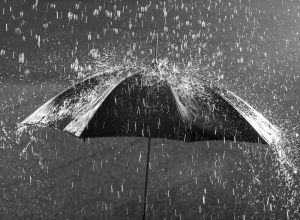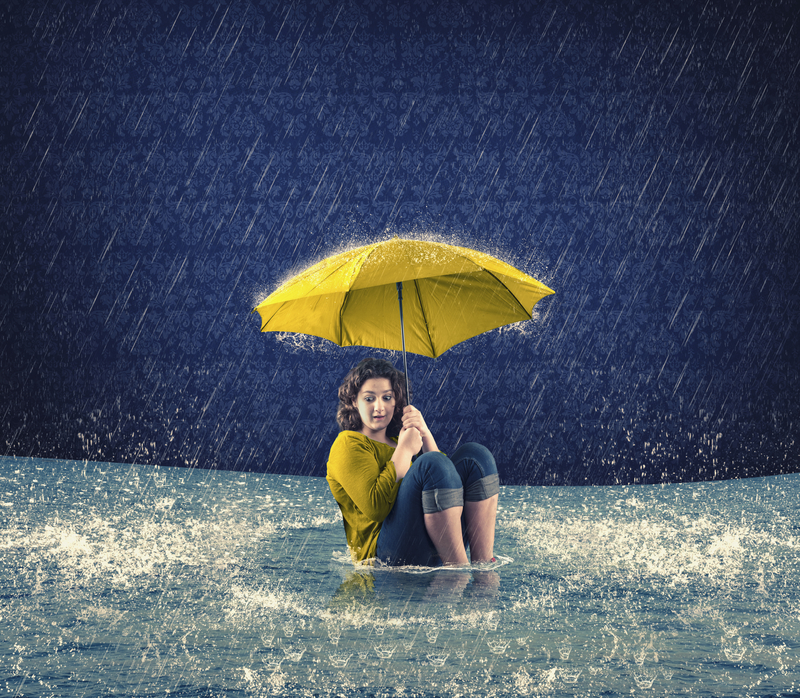If you live in areas that rainfall is common, chances are you’re going to get caught occasionally in a downpour. When at home or work, this may be a slight inconvenience.
If you are out in the country taking a hike, camping for the weekend or stuck on the side of the road and trekking to the nearest sign of civilization, rain can become a more serious problem. When we get wet, our bodies lose heat more rapidly. On hot sweaty days, this can be a good thing. On overcast days, even when it’s fairly warm, a soaked body can lead to hypothermia if the conditions last long enough.
If you get stuck and shelter isn’t readily available, and you think you may be subjected to less than perfect conditions for several hours, you can expect to eventually get drenched. But, there are steps to take to stay dry and delay the repercussions as long as possible.
Whether you’re fortunate enough to be sporting waterproof outerwear or stuck in your everyday rags, there are some extra precautions you can take.
[JACKPOT] NEVER Use Laundry Detergent Again!!! Discover How You Can Get Your Clothes Cleaned Without A Single Drop of Toxic Laundry Detergent…Don’t believe me? <<<See for yourself here>>>
Use an Umbrella-this may seem like an extremely obvious thing to mention, but if you think about it, how often have you or someone you know been caught in the rain without one.
Thanks to the readily available options of minis these days, it’s easier than ever to have an umbrella handy and ready to use. Stow one in your backpack, briefcase, laptop bag and all your vehicles.
If you don’t have one handy, try to find another way to keep your head covered whether it’s a hat, magazine, newspaper, extra clothing, etc. This can go a long way to prevent excessive heat loss from the top of your head.
Push Your Sleeves Up-If you are wearing layers, push the sleeves of any inner layered long-sleeved shirts up over your elbows. This way, if water leaks in from the cuffs of your outer layer, it won’t absorb into the shirt and work its way to your core. This will keep you dry on the inside a little longer.
Seal Your Cuffs-a common leak point, if your cuffs aren’t sealed, the water will make its way up your arms to your clothing. If you are only wearing one layer, keeping the water out for as long as your shirt or jacket can withstand the rain before soaking through will help delay heat loss.
Ventilate-If you end up sweating through your clothes, you’ll lose heat just as easily as if you get soaked by the rain. To allow vapor to escape, open ventilation points in your outerwear. If you are fortunate enough to be wearing a raincoat, zipper areas may be available for this. If not, loosen the bottom of your jacket so air can flow upwards. Open your top zipper or collar as much a possible without making it an easy entrance for the rain.
Related Article: “How to Prepare for a Flood”
Trash Bags– Out for the long haul? Instant poncho. Lots of puddles on the road? Makeshift galoshes. Willing to wait it out? Drape it over your head and use it as a personal tent, just make sure you let air in to breathe. Large plastic bags can be used for a variety of purposes when dealing with rain.
Be Prepared
As with any situation, there is never a better defense than a good offense. Being prepared for these situations will go a long way to making sure you get through them as comfortably and healthily as possible. That includes keeping appropriate rain gear in your belongings every time you go out.




